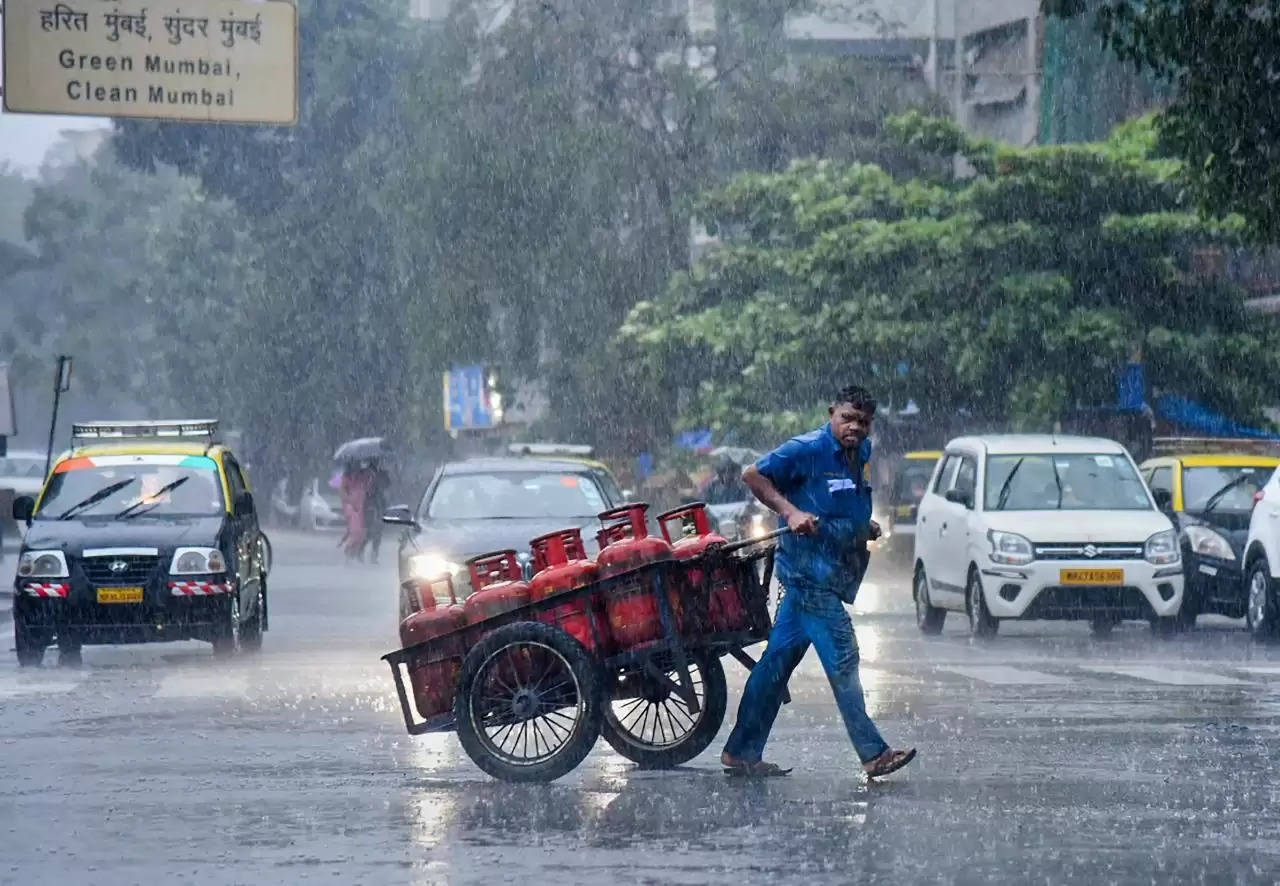Mumbai: IMD issues an orange alert as heavy rain is expected to continue today.

According to the most recent weather report from the Indian Meteorological Department, heavy rain will continue to fall in many areas of Mumbai on Wednesday as well (IMD).
The weather forecasting organisation predicts heavy rainfall throughout the city and suburbs, with the chance of very heavy rainfall in a few locations. Also, it has issued an orange alert for the metro area, indicating very heavy rains. As a result of the IMD's forecast for extremely heavy rainfall in the two districts on Wednesday, Pune and Raigad are on high alert.
Mumbai should expect to have heavy rain through July 22. After that, the amount is expected to progressively decrease.
According to the neighbourhood weather station, 106 mm of rain fell in Colaba throughout the course of the previous 24 hours. On Tuesday, the city's average temperature dropped by 2 degrees Celsius. On Tuesday, Mumbai recorded a maximum temperature of 28.0 degrees Celsius and a low temperature of 24.5 degrees Celsius.
Greater risk of vector-borne illness in Mumbai
Likewise, Bombay has seen a rise in vector-borne disease cases this month as a result of the recent heavy rains. According to BMC, there were more cases of leptospirosis and chikungunya in Bombay during the first 16 days of July than there were in whole of June. Compared to the 97 cases of leptospirosis and 8 cases of chikungunya discovered in June, the city reported 104 cases of leptospirosis and 10 cases of chikungunya in the first half of July.
The survey also clarified how common other diseases are in the city as a result of the monsoon. Up to July 16, the metropolis recorded the most instances of gastroenteritis (gastro), 932, as well as 355 cases of malaria, 264 cases of dengue, 76 cases of hepatitis, 52 cases of H1N1 (swine flu), and 10 cases of chikungunya.
Notably, experts have cautioned that the months of August and September typically see a spike in the occurrence of these diseases. People are at a heightened risk of contracting illnesses including chikungunya, dengue, malaria, Japanese encephalitis, and other vector-borne illnesses.
There is a considerable potential of further growth in the number of cases as the entire of north India, including Delhi and Mumbai, continues to experience heavy rainfall, waterlogging, and flood-like conditions.There is a significant chance that the frequency of these diseases prevalent in monsoon will continue to rise as a result of waterlogging and flood-like conditions.
.png)